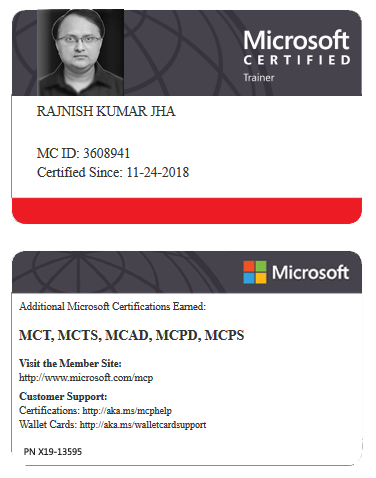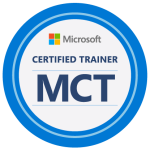-

Exploring Deployment Jobs strategies in Azure DevOps multi-stage YAML – Canary for AKS example
Exploring Deployment Jobs strategies in Azure DevOps multi-stage YAML – Canary for AKS example A Canary Deployment strategy for Azure Kubernetes Service (AKS) involves deploying updates to a small set of Kubernetes pods or services to validate changes before scaling them across the entire AKS… [ Read More ]
-

Exploring Deployment Jobs strategies in Azure DevOps multi-stage YAML – Canary Deployment
Exploring Deployment Jobs strategies in Azure DevOps multi-stage YAML – Canary Deployment A Canary Deployment is a progressive deployment strategy where a small subset of users or a small portion of resources are used to validate updates in a production-like environment before fully rolling out… [ Read More ]
-

Exploring Deployment Jobs strategies in Azure DevOps multi-stage YAML – Rolling Deployment
Exploring Deployment Jobs strategies in Azure DevOps multi-stage YAML – Rolling Deployment A Rolling Deployment strategy in Azure DevOps involves deploying updates incrementally to one environment at a time, moving from lower environments to higher environments (e.g., Development → Staging → Production). This allows for… [ Read More ]
-

Exploring Deployment Jobs strategies in Azure DevOps multi-stage YAML – RunOnce
Exploring Deployment Jobs strategies in Azure DevOps multi-stage YAML – RunOnce In Azure DevOps Multi-stage YAML pipelines, the RunOnce deployment job strategy is used when a job should run only once, regardless of how many environments or stages are involved. This strategy is useful for… [ Read More ]
-

Describing Lifecycle Hooks in Azure DevOps multi-stage YAML
Describing Lifecycle Hooks in Azure DevOps multi-stage YAML Lifecycle hooks in Azure DevOps allow you to define specific actions at key stages of a pipeline execution. These hooks help manage different tasks such as setup, deployment, routing, and recovery based on the success or failure… [ Read More ]
-

Describing Deployment Jobs strategies in Azure DevOps multi-stage YAML
Describing Deployment Jobs strategies in Azure DevOps multi-stage YAML Deployment jobs strategies in Azure DevOps Multi-stage YAML can be divided into several steps. Here are the brief details about them. Enable Initialization: Set up necessary configurations before deploying the update. Deploy the Update: Apply the… [ Read More ]
-

What is Resource Group in Azure?
In Microsoft Azure, a Resource Group is a container that holds related resources for an Azure solution. It is an essential concept for organizing, managing, and deploying Azure resources. Proper understanding and management of resource groups are vital for resource organization, access control, and cost… [ Read More ]
-

Understanding Variable Groups in Azure DevOps
Understanding Variable Groups in Azure DevOps Variable Groups in Azure DevOps are a centralized way to manage and store reusable sets of variables. These variables can be used across multiple pipelines, helping to standardize configurations and reduce duplication. Benefits of Using Variable Groups Centralized Management:… [ Read More ]
-
Understand the essential information about KQL Query Structure in Azure
Kusto Query Language (KQL) is used to query data in Azure, particularly within Azure Monitor, Azure Log Analytics, and Azure Sentinel. Understanding the KQL query structure is key to efficiently retrieving and analyzing data. Below are the fundamental elements of KQL query structure: Basic Structure… [ Read More ]
-

Exploring variables in Release Pipelines in Azure DevOps
Exploring variables in Release Pipelines in Azure DevOps Variables in Azure DevOps pipelines provide a way to store and manage dynamic values. They are essential for configuring pipelines dynamically and securely without hardcoding values directly into the pipeline definition. 1. Types of Variables Predefined Variables… [ Read More ]
DevOps, Cloud, Azure resources & blog
Author: Rajnish Kumar Jha
Featured Courses

Rajnish Kumar Jha
MCT, MCSA, MCSE, MCAD, MCPD, MCTS, MCSD
My name is Rajnish Kumar Jha. I am Technical architect on Azure Cloud and .NET since 21+ years. I’ve worked for pioneer companies and as freelance trainer/consultant helping my clients to achieve their IT goals.
I find blogging, a great way to share back what I’ve learned all through my professional journey. You are welcome to connect or share feedback/suggestion here or through an email.
Popular Posts
Stay Connected
Unlock the full potential of Azure Cloud with me
– Your trusted guide to Azure mastery!
SUBSCRIBE
My newsletter for exclusive content and offers. Type email and hit Enter.
No spam ever. Unsubscribe anytime.
Read the Privacy Policy.


















